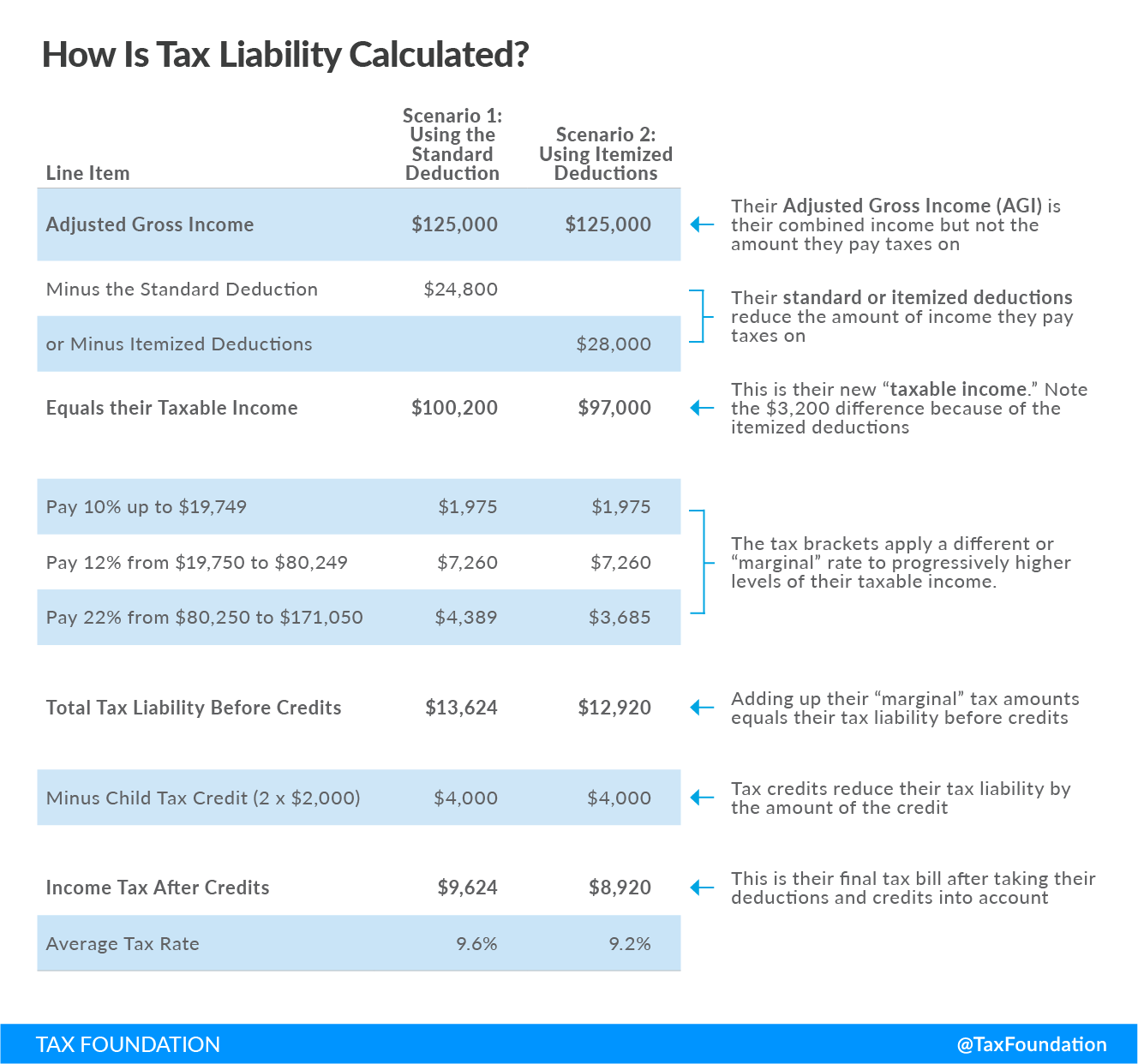The FEIE Standard Deduction: How it works for digital nomads
Wiki Article
The Foreign Earned Earnings Exemption Explained: An Overview to Enhancing Your Typical Reduction
The Foreign Earned Revenue Exclusion (FEIE) is an essential tax stipulation for U.S. citizens and resident aliens living abroad. It enables eligible migrants to exclude a substantial section of their foreign-earned income from government taxes. Comprehending the nuances of FEIE can bring about considerable tax financial savings. Several individuals forget essential information that might impact their qualification and advantages. Discovering these elements may disclose chances for enhanced tax obligation outcomes.Recognizing the Foreign Earned Earnings Exemption
Lots of migrants look for opportunities abroad, comprehending the Foreign Earned Revenue Exemption (FEIE) is important for handling their tax responsibilities. This provision enables U.S. residents and resident aliens living overseas to leave out a certain quantity of their earned earnings from federal tax. The FEIE was established to relieve the tax obligation burden on individuals who reside outside the United States, acknowledging the special monetary difficulties they might deal with.
Qualification Needs for FEIE

How to Declare the FEIE
To successfully assert the Foreign Earned Income Exemption (FEIE), taxpayers have to first confirm their qualification based on certain criteria - FEIE Standard Deduction. The procedure includes numerous steps, consisting of filing the suitable types and offering required documents. Understanding these treatments and requirements is essential for maximizing tax advantages while living abroadEligibility Demands
Qualification for the Foreign Earned Earnings Exclusion (FEIE) rests on conference specific standards established by the internal revenue service. To qualify, people should be united state residents or resident aliens who make income while functioning abroad. They require to develop a foreign tax home, which indicates their main location of business is outside the USA. Additionally, applicants should satisfy either the Authentic House Test or the Physical Visibility Examination. The Bona Fide House Examination requires that a taxpayer resides in an international nation for a whole tax obligation year, while the Physical Presence Test necessitates investing at the very least 330 complete days in an international nation throughout a 12-month duration. Meeting these requirements is important for declaring the FEIE.Filing Refine Steps
Exactly how can one successfully browse the procedure of asserting the Foreign Earned Revenue Exemption (FEIE)? First, individuals need to identify their qualification based on the physical visibility examination or the authentic home examination. When verified, they must finish internal revenue service Type 2555, which details foreign income and residency. This form has to be affixed to their yearly tax return, typically Kind 1040. It is vital to properly report all foreign gained revenue and guarantee compliance with the internal revenue service guidelines. Furthermore, taxpayers need to preserve correct documentation, such as international tax obligation returns and evidence of residency. By complying with these steps, people can successfully declare the FEIE and potentially minimize their gross income substantially, boosting their overall financial position.Computing Your Foreign Earned Revenue Exclusion
While lots of migrants seek to maximize their financial benefits abroad, comprehending the calculation of the Foreign Earned Income Exclusion is crucial for accurate tax obligation reporting. The Foreign Earned Earnings Exclusion permits certifying individuals to exclude a certain amount of their foreign revenues from U.S. taxation, which is adjusted yearly for rising cost of living. To compute this exemption, expatriates must identify their total foreign earned earnings, which usually includes incomes, salaries, and specialist fees made while staying in an international country.Next, they have to complete IRS Type 2555, giving details regarding their foreign residency and work standing. FEIE Standard Deduction. It is essential to fulfill either the bona fide home test or the physical existence test to certify for the exclusion. When these variables are established, the optimum permitted exemption amount is used, decreasing the person's taxable revenue substantially. Precise estimations can cause substantial tax savings for migrants living and functioning abroad
The Influence of FEIE on Other Tax Obligation Benefits
The Foreign Earned Revenue Exclusion (FEIE) can affect an individual's qualification for sure tax advantages, including the conventional deduction. By leaving out foreign made earnings, taxpayers may discover their adjusted gross income affected, which in turn can impact their credentials for various tax obligation credits. Comprehending these communications is crucial for enhancing tax outcomes while living abroad.Communication With Criterion Reduction
When people receive the Foreign Earned Revenue Exemption (FEIE), their eligibility for the basic deduction may be impacted, potentially altering their general tax obligation obligation. The FEIE permits taxpayers to leave out a specific amount of earned income from united state tax, which can lead to a reduced taxed revenue. Because of this, if the excluded revenue exceeds the common reduction, it can reduce the benefit of asserting that deduction. Additionally, taxpayers that use the FEIE may discover that their capability to make a list of deductions is also affected, as specific expenses might be impacted by the exemption. Comprehending this interaction is important for expatriates to maximize their tax obligation benefits while making sure compliance with U.S. tax obligation legislationsQualification for Tax Debts
Guiding with the intricacies of tax credit ratings can be testing for expatriates, especially because this page the Foreign Earned Revenue Exclusion (FEIE) can greatly affect qualification for these benefits. The FEIE enables qualified individuals to omit a considerable part of their international revenues from U.S. taxation, however this exemption can additionally affect accessibility to various tax obligation credits. For circumstances, taxpayers that utilize the FEIE might locate themselves ineligible for credit ratings like the Earned Earnings Tax Obligation Credit Report (EITC), as these credit ratings commonly need taxed earnings. Additionally, the exclusion might limit the ability to claim certain deductions or credit scores related to dependents. As a result, comprehending the interplay between the FEIE and available tax obligation credit ratings is essential for expatriates intending to enhance their tax circumstance.Common Mistakes to Stay Clear Of When Claiming FEIE
Typically, expatriates experience numerous mistakes while declaring the Foreign Earned Revenue Exemption (FEIE), which can result in expensive my website mistakes or missed chances. One constant mistake is stopping working to satisfy the physical presence or bona fide home test, which is crucial for eligibility. Additionally, migrants often overlook the demand to file Form 2555 correctly, leading to incomplete or incorrect entries.One more typical error entails inaccurately computing international gained revenue, as many do not represent all appropriate earnings resources. Some migrants incorrectly think they can leave out all their revenue, not aware of the constraints on the exemption quantity. In addition, neglecting to keep appropriate documentation, such as travel dates and residency standing, can jeopardize a claim. Misinterpreting the implications of the FEIE on various other tax credit histories may lead to unintended tax obligation liabilities. Recognition of these pitfalls can promote a smoother declaring procedure and make best use of prospective benefits.
Resources for Expats Navigating United State Tax Obligations
Navigating U.S. tax obligations can be testing for expatriates, particularly after encountering risks in claiming the Foreign Earned Revenue Exclusion (FEIE) To aid browse these complexities, a selection of resources are readily available. The internal revenue service website supplies extensive info on tax obligation types, frequently asked questions, and regulations particularly customized for expatriates. Furthermore, companies like the American Citizens Abroad (ACA) and the Deportee Tax obligation Professionals offer assistance and assistance to assure compliance with tax legislations.On-line forums and areas, such as the Expat Forum, allow expatriates to share experiences and understandings, cultivating a supportive atmosphere for those encountering comparable obstacles. In addition, tax preparation software application, like copyright and H&R Block, usually consists of attributes made for deportees, making the declaring procedure a lot more user-friendly. Involving with these sources can equip migrants to better understand their tax obligations and optimize benefits like the FEIE.
Frequently Asked Concerns
Can I Declare FEIE if I'M Independent Abroad?
Yes, self-employed people abroad can declare the Foreign Earned Income Exclusion (FEIE) To qualify, they need to meet specific demands concerning residency and income, guaranteeing they stick to IRS standards for migrants.
Is the FEIE Applicable to Foreign Pensions?
The Foreign Earned Income Exemption (FEIE) is not relevant to international pensions. Pension plans are taken into consideration unearned earnings and do not qualify for the exemption, which particularly relates to gained income from work or self-employment abroad.What Occurs if I Go Back To the United State Mid-Year?
They may require to adjust their tax obligation circumstance if a private returns to the U.S. mid-year. Their qualification for sure reductions and exclusions, including the Foreign click to find out more Earned Earnings Exemption, could be influenced by their residency status.Can FEIE Be Claimed With Various Other Reductions?
Yes, the Foreign Earned Income Exclusion (FEIE) can be asserted alongside other reductions. Care should be taken to assure proper compliance with tax guidelines, as certain restrictions might apply based on private situations.Exactly How Does FEIE Influence State Tax Obligation Obligations?
The Foreign Earned Earnings Exemption can reduce a taxpayer's federal revenue tax responsibility, but it does not immediately influence state tax obligation obligations, which differ by state and might still require reporting of international income.Lots of migrants look for chances abroad, comprehending the Foreign Earned Earnings Exemption (FEIE) is crucial for handling their tax obligation commitments. By leaving out foreign earned revenue, taxpayers might discover their modified gross revenue affected, which in turn can impact their credentials for numerous tax obligation credit scores. Steering with the complexities of tax credit reports can be testing for migrants, specifically because the Foreign Earned Earnings Exclusion (FEIE) can greatly impact eligibility for these benefits. Taxpayers who use the FEIE may find themselves disqualified for debts like the Earned Earnings Tax Credit History (EITC), as these debts generally need taxable revenue. Navigating United state tax responsibilities can be testing for migrants, especially after coming across risks in declaring the Foreign Earned Income Exemption (FEIE)
Report this wiki page